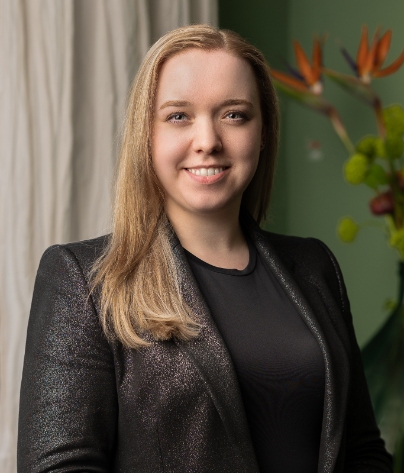
Which is the best choice? Employ a bookkeeper or outsource it to an accounting firm? Read more about it here.


When you start a business, you choose a legal form. In this article, we look at the differences between the legal forms the sole proprietorship and the besloten vennootschap (bv). We list the pros and cons so you can choose which legal form suits you best.
The sole proprietorship and the besloten vennootschap (bv) are two legal forms that have several differences. These include differences in liability, taxes, formation & costs and asset accumulation. The table below compares the two legal forms:
Sole proprietorship | Besloten vennootschap (bv) in the Netherlands | |
Founding | Registration in the CoC | Besloten vennootschap (bv) in the Netherlands |
Capital contribution | No requirements | Initial capital of at least €0.01 |
Board | Owner | Board/director |
Property | Personal | Shareholders |
Participation in other companies | No | Yes, the bv can hold shares in other companies |
Liability | 100% private liability | Shielded private assets |
Tax | Income tax and sales tax (except for KOR scheme) | Payroll tax, sales tax, corporate income tax and dividend tax |
Financial annual report | None | Mandatory |
Social security | No entitlement to employee insurance benefits | No employee insurance except if dismissal is possible against the wishes of the director-major shareholder (dga) and/or if the shareholding, with or without your partner, is less than 50%. |
Discover the main advantages by legal form.
Perhaps the biggest difference between a sole proprietorship and a besloten vennootschap is liability. With a sole proprietorship, you are liable both in business and in private for any debts incurred by the sole proprietorship. Creditors can then recover not only the assets in the sole proprietorship, but also the assets you have in your private life. If you have very high debts in your sole proprietorship and cannot pay them in business, this is a risk for your private situation. For example, you could lose your own savings, house or car. When a limited liability company goes bankrupt, creditors can only appeal to the assets left in the company to get their money back. When, as a director of the bv, you performed your managerial duties properly, you are not liable privately.
The sole proprietorship is usually more tax advantageous in the early stages of a business. Only the profit (turnover - purchases and expenses) of a sole proprietorship is taxed in Box 1 of income tax. In addition, the owner of a sole proprietorship is entitled to various deductions such as entrepreneur deduction, self-employment deduction and start-up deduction. Want to know more about taxes with a sole proprietorship? Then read our blog on this subject.
From a profit of €80,000, it is more advantageous to conduct the business in a bv. With a bv, profit is turnover - purchases and expenses. These costs include your salary (as director). A bv pays corporate tax on profits. All profits up to €200,000 are taxed at 19%, everything above is taxed at the high rate of 25.8%. In addition, the DGA (director-major shareholder) pays income tax on his/her salary and any dividends paid.
Starting a sole proprietorship is very simple, a visit to the Chamber of Commerce and a payment of €80.10 and you have registered your sole proprietorship and can start operating from it. With a bv, this is a bit trickier and more expensive. To set up a bv you need to go to the notary, you need a notarial deed. A visit to the notary can quickly run high in costs, this is something to consider when starting up.
Also, with a besloten vennootschap, you are obliged to pay start-up capital into the company, recently this minimum amount has been reduced to €0.01. Despite being allowed from as low as €0.01 these days, it is still something formal to take into account when setting up a company.
With a bv it is easier to attract investors. A bv has shares that can be sold/given away. At incorporation, all shares go to the founder(s). When the founders then start looking for investors, these investors can be promised shares (or bought with the amount to be invested) in exchange for the investment. This way, the investors also get a direct connection with the company and also benefit if, partly because of the investment, the company is doing well.
If you choose to start your business as a sole proprietorship and want to convert it to a bv at some point, for example due to the growth of your business, you can still do so! We can assist you in converting a sole proprietorship to a bv Please contact us to do so.

Which is the best choice? Employ a bookkeeper or outsource it to an accounting firm? Read more about it here.

What is the role of a shareholders' agreement and why should you include it when setting up a bv? Read more about it here.

Read here what you need to consider when setting up a bv with a foreign shareholder.

Belastingadviseur Eindhoven is onderdeel van Adviesgroep Eindhoven. De one-stop-shop voor ondernemers, particulieren en expats.
Om de beste ervaringen te bieden, gebruiken wij technologieën zoals cookies om informatie over je apparaat op te slaan en/of te raadplegen. Door in te stemmen met deze technologieën kunnen wij gegevens zoals surfgedrag of unieke ID's op deze site verwerken. Als je geen toestemming geeft of uw toestemming intrekt, kan dit een nadelige invloed hebben op bepaalde functies en mogelijkheden.